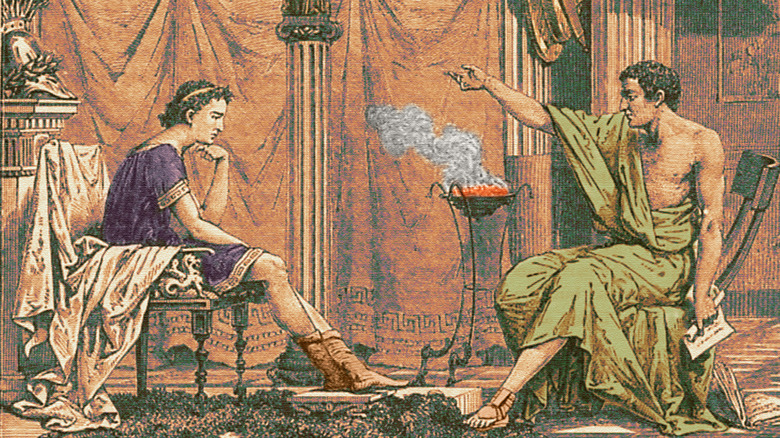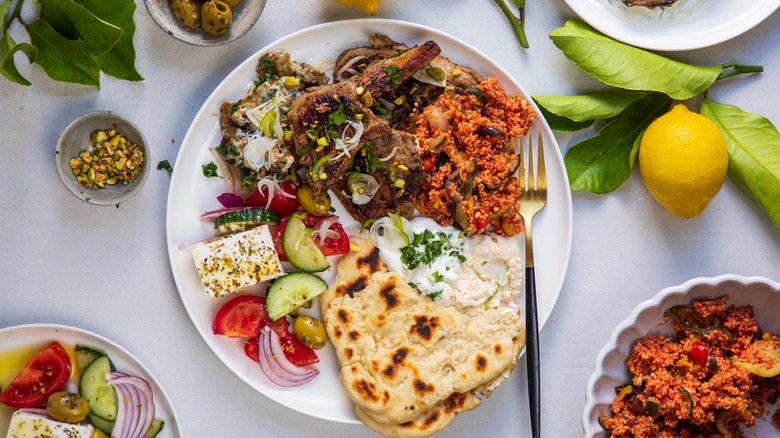The Only Way Alexander The Great Would Drink Wine
Alexander the Great was a man known for his great appetite. That was equally true when it came to geopolitical conquests, romantic partners, and, of course, wine. His love of wine was exacerbated by the fact that Alexander eschewed the norms of the day by drinking it straight, rather than diluted with water, as was Greek custom among the elites.
Conventional wisdom at the time was that tempering wine with water was better for your health and would prevent excessive inebriation — an understandable sentiment since Greek nobles back then could drink around a pint daily. However, Alexander the Great was originally from Macedonia, in the northern part of the Greek empire, and its residents were known for intemperance when it came to drinking, exemplified by their custom to enjoy wine neat, uncut by water.
While over-intoxication was not a becoming trait of the Greeks, Alexander and his father Phillip II were both infamous imbibers, known for getting into fights with each other as well as patrons at weddings and festivals, leading to destruction and, at times, even murder. Alexander's drinking was so prevalent during his reign that it has led to much historical speculation that it was a contributing cause to his death at the young age of 32, though that assertion is contested amongst historians.
Food was also plentiful at ancient Greek banquets
While Alexander the Great may have spent his time unceremoniously at weddings and banquets, the Greek symposiums of his day were largely joyous events. The wine flowed freely, and beer and mead were also available on special occasions. Symposiums were often a two-part affair with the banquet and the drinking party, but wine was readily available during the meal as well. These events were reserved for men of wealth and stature, who would repose on couches, discuss philosophy and politics, or simply enjoy the provided entertainment and refreshments.
The food was spiced and wide-ranging. After making an offering to the gods, then came a course of cheese. At the feast, fish, roasted lamb, olives in brine (or olives made into relish), and of course, figs were plentiful. Greek banquets could also boast what some believe to be the world's first ancient dessert: loukoumades, or fried dough balls dipped in honey syrup and resembling a modern donut hole, the origins of which allegedly date as far back as 776 B.C. Sometimes, an early evolutionary branch of ice cream was offered too, consisting of ice topped with nectar or honey — it was another dish that Alexander the Great reportedly had an abiding love for.


